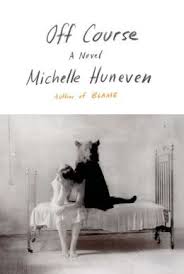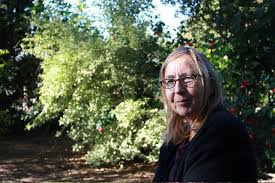Narratives of unrequited love, that staple of story and song, sometimes end in tragedy but always entail hurt. Emma Bovary swallows arsenic. Before she dies, Flaubert takes the reader through the rise and fall of her two love affairs. But his true subject is not unrequited love and not even adultery. It is fascination. Recalling her encounter with the novel at age eighteen, A.S. Byatt said, “Reading Madame Bovary for the first time was one of the most terrifying experiences of my life … It was, and is, the least romantic book I have ever read.” The novel is famous for introducing a modern air of meaninglessness. But the narrator’s cool peering at Emma’s enclosed psyche and its fascinations comprises the real terror. Flaubert specified that prose should be chaud en dessous et splendide à la surface — the turbulence churns beneath a meticulously phrased surface. Unrequited love elicits the reader’s empathy. But fascination, abetted by traces of the novelist’s own dread or helplessness or mystification, triggers uneasiness.
 The main character of Michelle Huneven’s fourth novel, Off Course, is Cressida Hartley, a graduate student in economics. The time is the early 1980’s. In the story’s second sentence, the narrator says, “She would not become one of the aging lurkers around the Econ Department who hoped for sections of Intro to teach while the tenure track shimmered eternally on the far side of two hundred pages.” So Cress drives from southern California up into the Sierra Madres to squat at her parents’ A-frame and write her dissertation. After a fling with the owner of a nearby lodge, she takes up with Quinn Morrow, a married carpenter.
The main character of Michelle Huneven’s fourth novel, Off Course, is Cressida Hartley, a graduate student in economics. The time is the early 1980’s. In the story’s second sentence, the narrator says, “She would not become one of the aging lurkers around the Econ Department who hoped for sections of Intro to teach while the tenure track shimmered eternally on the far side of two hundred pages.” So Cress drives from southern California up into the Sierra Madres to squat at her parents’ A-frame and write her dissertation. After a fling with the owner of a nearby lodge, she takes up with Quinn Morrow, a married carpenter.
Comedic in spirit, Off Course spins a splendid surface and takes a faintly admonitory tone. The narrator is not looking so much as looking back at Cress and telling a cautionary tale — but not without warmth for (or identification with) her protagonist: “And so it was on familiar roads, in her family’s other home, with the blessings of those closest to her, that she veered off course, into the woods.” The novel’s spiraling form follows Cress’ reversions and routines: the approaches and withdrawals of an affair, the rides up and down the mountain to her waitress job or to see friends, appetites sated and languishing, the “diss” taken up and packed away.
 Early on, Cress befriends DeeDee, a lodge waitress who runs a poker game at her house. Quinn bets recklessly and loses extravagantly. After the games, Cress says to DeeDee, “Economists call it loss aversion — when you compound losing like that.” Dreading loss (which is a memory of having lost before), one bets wildly against the odds of winning. The psychologist Adam Phillips suggests that to be fascinated with someone is to deny that person’s personhood. “We are only fascinated, Freud suggests, by something we have already lost,” write Phillips in his essay “Smile.” “We are only fascinated, in other words, by what is missing — by the past. Fascination is the exhilaration of a mourning that never gives up hope.” It is a defense against loss.
Early on, Cress befriends DeeDee, a lodge waitress who runs a poker game at her house. Quinn bets recklessly and loses extravagantly. After the games, Cress says to DeeDee, “Economists call it loss aversion — when you compound losing like that.” Dreading loss (which is a memory of having lost before), one bets wildly against the odds of winning. The psychologist Adam Phillips suggests that to be fascinated with someone is to deny that person’s personhood. “We are only fascinated, Freud suggests, by something we have already lost,” write Phillips in his essay “Smile.” “We are only fascinated, in other words, by what is missing — by the past. Fascination is the exhilaration of a mourning that never gives up hope.” It is a defense against loss.
The artistry of Off Course is its sly entrapment of the reader within both the nexus of fascination and the feckless hope of leveraging it into satisfaction — even while Cress analyzes the low odds of beating the rap. She is susceptible to despair — but she never quite buys into her own desires. Her issue with dissertation writing, she claims, is “I had to ignore so much reality to seem at all systematic.” Reality is what she seems to long for, severed from a familial history that festers in the background. (Her cost-conscious, self-interested father is described as “a traumatized victim of the Great Depression.”) But even the atmosphere of the Sierras, her ostensible refuge, riddles her with altitude sickness.
 Deep into her affair, she sizes things up: “Her mind clicked and calculated. She was not a cost-effective choice for Quinn. He’d lose daily access to his children, the house in town, not to mention a wife’s beauty and faultless housekeeping. And for what? A broad-faced, homeless All-but-Disser with a bank account in the mid-three figures? … Having had Sylvia exclusively to himself might mean more to him than he realized. His generation put a premium on that sort of thing, while hers considered virginity and, to some extent, the monogamous impulse itself, a liability.”
Deep into her affair, she sizes things up: “Her mind clicked and calculated. She was not a cost-effective choice for Quinn. He’d lose daily access to his children, the house in town, not to mention a wife’s beauty and faultless housekeeping. And for what? A broad-faced, homeless All-but-Disser with a bank account in the mid-three figures? … Having had Sylvia exclusively to himself might mean more to him than he realized. His generation put a premium on that sort of thing, while hers considered virginity and, to some extent, the monogamous impulse itself, a liability.”
Cress rues her abandonment of art, telling Quinn, “I’d love to look hard at the natural world all day and make my feeble facsimile. It’s such a noble, old-fashioned profession, like writing novels.” Looking hard at nature and capturing the essence of place is one of Huneven’s signature assets in Off Course — perhaps the one notable instance of the narrator’s elevation over her subject.
 Off Course includes a sizable cast of ensemble players, often regarded with a bluntly critical eye. Cress’ behavior meets with the disapproval of those who perceive her as a home-wrecker. A woman in town tells her, “There’s a carelessness about you, Cress, and a blurriness about what’s yours and what’s not.” Adultery may be the issue for that woman, but it is not for Huneven or the narrator. When the reader encounters that line, it resonates in an entirely different way — yes, Cress exhibits a carelessness. At the same time, one shares Cress’ distaste for the hypocrisy, cliched speech, and bad taste she senses around her.
Off Course includes a sizable cast of ensemble players, often regarded with a bluntly critical eye. Cress’ behavior meets with the disapproval of those who perceive her as a home-wrecker. A woman in town tells her, “There’s a carelessness about you, Cress, and a blurriness about what’s yours and what’s not.” Adultery may be the issue for that woman, but it is not for Huneven or the narrator. When the reader encounters that line, it resonates in an entirely different way — yes, Cress exhibits a carelessness. At the same time, one shares Cress’ distaste for the hypocrisy, cliched speech, and bad taste she senses around her.
Adam Phillips writes in another essay, “That which I cannot escape I must find ways of seeming to escape: this would be the comedy-as-farce approach. That which I cannot escape I must ultimately and impressively submit to, at exorbitant cost: this would be the tragic view.” Huneven is acutely attuned to both modes, and this is why Off Course seems to pull off the two approaches at once. The narrative voice emits this duality and is utterly convincing. In a calm mood, Cress says (via the narrator), “Love affairs, it seemed, had hidden components that, when removed, destabilized the whole.” Those components remain veiled in the turbulent depths of the prose.
[Published by Farrar, Straus & Giroux on April 1, 2014. 287 pages, $23.00 hardcover. Paperback due from Picador in April, 2015]